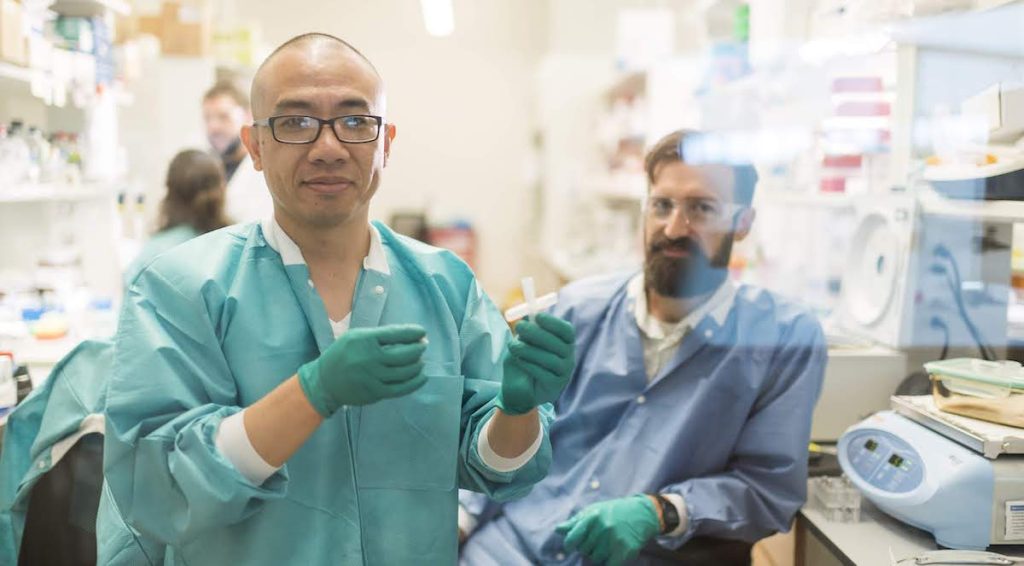16 Feb CAR macrophages show promise for cancer immunotherapy treatments

Associate scientist Jue Zhang and Morgridge affiliate Matthew Brown.
Macrophages are specialized immune cells that can be adapted for the treatment of certain solid tumors by arming them with chimeric antigen receptors (CARs).
Tumor-associated macrophages make up about 50% of the cells in a tumor, which gives them the ability to both infiltrate and reside inside solid tumors By taking advantage of this property, macrophages equipped with CARs can specifically recognize the cancerous cells over the healthy ones, and also eliminate a subset of them in the process.
Getting to that point, however, requires lots of trial and error through genetic engineering.
New research published in the journal Stem Cell Reports investigated CRISPR-Cas9 gene editing methods to insert anti-CD2 CAR into pluripotent stem cells and produce CAR macrophages.
Associate scientist Jue Zhang, who has been with the Jamie Thomson Lab at Morgridge for over 11 years, took the lead in designing and carrying out experimentation, analyzing the data, and in being the primary author of the resulting publication. He expresses how these kinds of cell integrations can be very helpful in the context of cancer immunotherapy applications.
“Macrophages themselves have a limited ability to cure cancer,” says Zhang. “Once you have an anti-GD2 CAR expressed, that macrophage becomes an anti-tumor weapon.”



